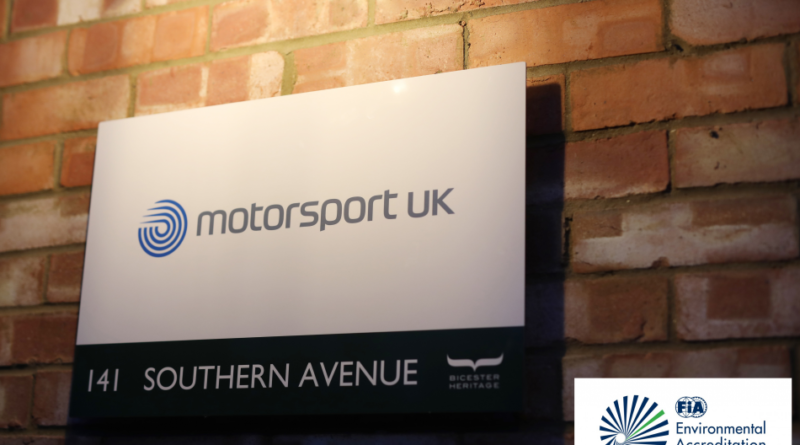Motorsport UK awarded FIA Three-Star Accreditation
Ahead of COP 27 Motorsport UK has been awarded the FIA Three-Star Environmental Accreditation – the highest level of environmental accreditation.

The FIA Environmental Accreditation programme is aimed at helping global motorsport and mobility stakeholders measure and enhance their environmental performance. It includes a clear and consistent environmental evaluation and provides a three-level framework which looks at the management, approach and application of environment issues.
An evaluation of Motorsport UK was undertaken in 2022 and the Three-Star Accreditation was awarded to the governing body as a result of the implementation of its Sustainability Strategy.
Released in 2021, the strategy maps out the blueprint for the breadth of UK motorsport to take the necessary steps that can help avoid and reduce emissions – today, tomorrow and in the near future.
The world governing body singled out Motorsport UK’s leadership, motivation and attention to detail as the underpinning reasons behind the accreditation.
Specifically, Motorsport UK’s environmental management system was praised for its preparedness in tracking future performance – ensuring the journey to net zero is informed by data, fully transparent and shares knowledge across the sport.
FIA Environmental & Sustainability Commission President, Felipe Calderon, said, “The FIA is delighted to recognise the strong and constant commitment to the environment demonstrated by Motorsport UK, the latest FIA member to obtain the highest FIA Environmental standard, the Three-Star level. The FIA has entered a new era, demonstrating a commitment to leading environmental responsibility across all areas of motorsport in a time where climate action is absolutely required. The great experience and knowledge of the FIA’s members is crucial in supporting our ambition.”
Hugh Chambers, CEO of Motorsport UK, said, “It is fantastic to see the efforts of Motorsport UK’s environmental sustainability activities be recognised at the highest level by the FIA. The voice of motorsport matters in the wider debate about how we tackle global climate change. That’s why, in 2021, we published our sustainability strategy which contains our climate action recommendations and commitments to creating a sustainable sport. These include our commitment to supporting clubs as the world transitions to low-carbon technologies in the future, as well as how we see motorsport technology transferring to the wider automotive world. I am confident that the processes and systems that are being set in motion by the team at Motorsport UK will prove pivotal in our efforts to decarbonise the sport – and help the wider community to achieve the same goal.”
About the FIA Environmental Accreditation Programme
The FIA Environmental Accreditation Programme is aimed at helping motor sport and mobility stakeholders worldwide to measure and enhance their environmental performance. By introducing a clear and consistent environmental management system, it provides stakeholders with a three-level framework against which to accredit their activities:
1. One-Star – Basic practice: Demonstrate basic environmental performance and a commitment to improve
2. Two-Star – Good practice: Demonstrate good environmental performance and be close to follow internationally developed roadmaps toward environmental management
3. Three-Star – Best practice: Demonstrate best practice and commitment to seek continual improvement through the implementation of an environmental management system.
About Motorsport UK’s Sustainability Strategy
Motorsport UK’s Sustainability Strategy sets out a bold ambition to achieve substantial change within the sport which can contribute actively to global sustainability.
The Sustainability Strategy supports Motorsport UK’s 2020 – 2025 Strategy based on the priority of Sport Development, Innovation and Sustainability.
Its creation was supported by Enovation Consulting and covers all facets of the sport and the great number of groups and individuals who are involved. Specifically, these include the governing body’s internal stakeholders (staff and committees), its members (licence holders, volunteers and clubs), the wider competition landscape (teams, venues, promoters, suppliers and manufacturers) and the broader network (fans, sponsors, governments and sport).

